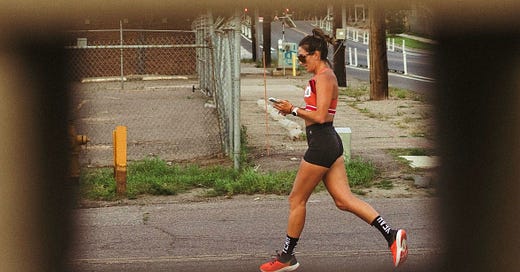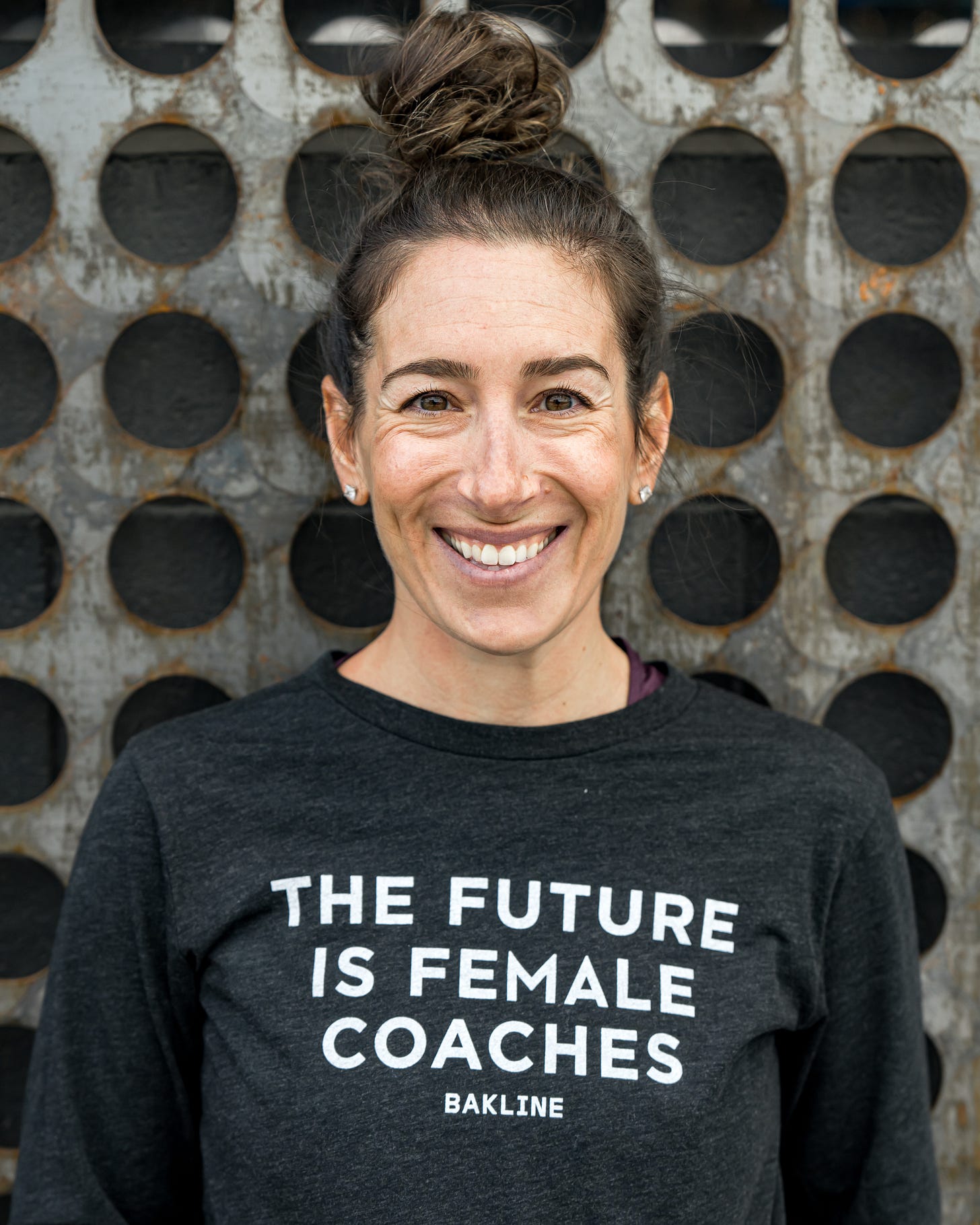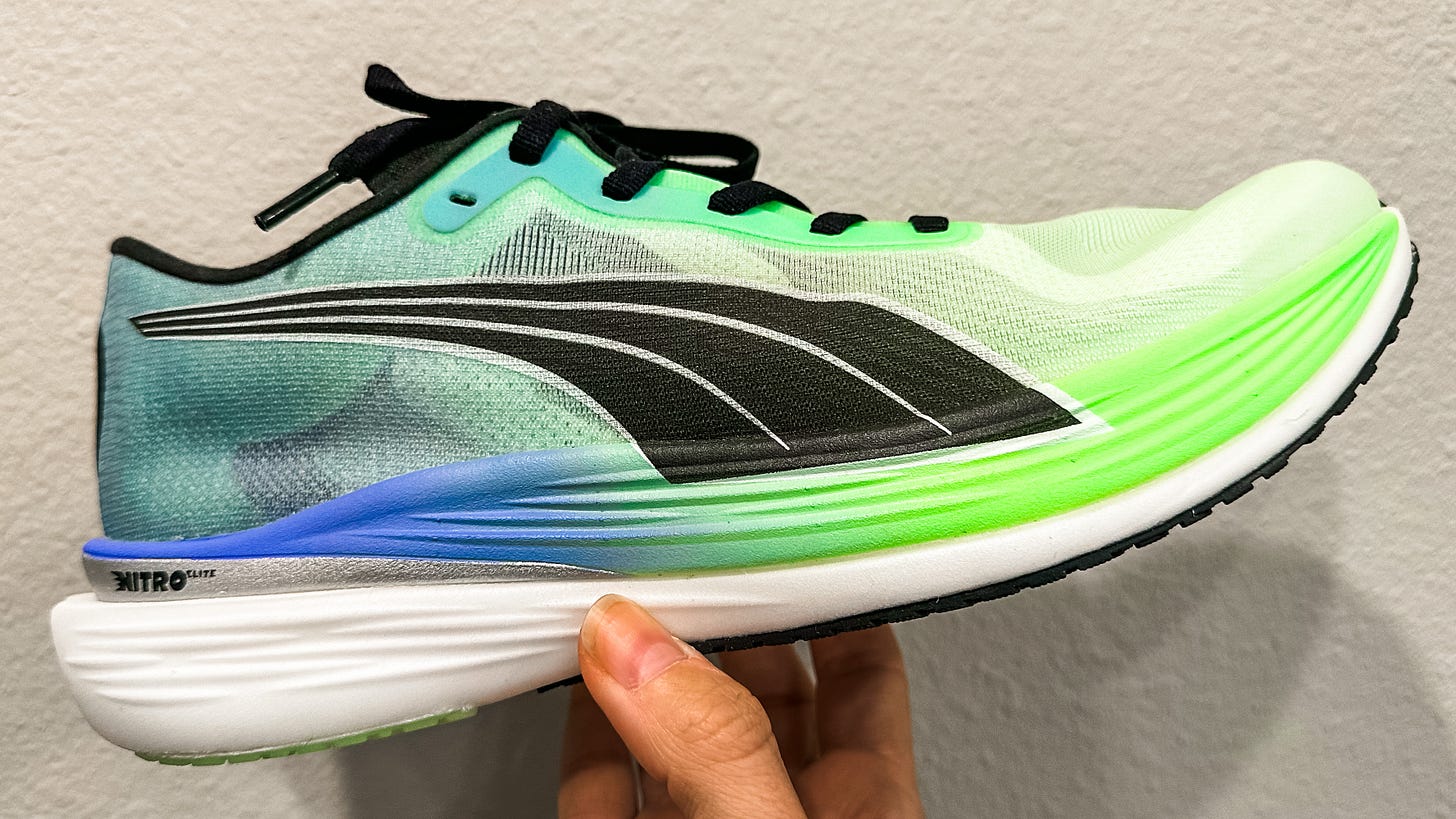Are Instagram Run Coaches Legit?
Sift through the noise on running social media to find the right coach for your goals.
It’s me, hi, I’m the problem an Instagram running coach—in that I’m a certified running coach who uses social media to connect with the larger running community.
Instagram, Twitter, and TikTok are full of coaches like me, alongside elite coaches with way more expertise and knowledge as well as “coaches” who are packaging and selling advice based solely on their own journey. How do you sort through all the noise to find someone you can trust to help you reach your own goals?
It’s going to take a little work on your end. The problem with social media is that it’s gotten us all accustomed to instant gratification, says Victoria Sekely, a doctor of physical therapy, certified strength and conditioning specialist, and running coach. For every certified coach sharing science-backed advice on social media, there’s a hundred runners sharing their personal opinions on training, fueling, and racing—and just because something worked for one runner doesn’t mean it’s a) going to work for you or b) factual information. “You can’t just believe every Reel and post that you see,” says Sekely.
Whether you’re looking to hire a coach for one-on-one services, join a virtual training group, or purchase a downloadable training plan from a coach, it’s crucial to vet their credentials, says Jason Fitzgerald, a USATF-certified coach and creator of Strength Running.
But what do you look for? “A coaching certification and some experience—meaning a coach is actually working with clients—is the bare minimum,” he says. Beyond that, “I like to see coaches who have been formally involved in a team themselves, whether that’s track or cross country; who have had coaches themselves; who work with a variety of athletes at different levels; and who have a certain level of interest in the sport so that they’re continuing their education,” says Fitzgerald.
A coach doesn’t have to do all of those things, but the more boxes they check, the better off you’ll likely be. Of course, most coaches don’t share that information in a neat little listicle; it’s up to you to do your due diligence. And if you can’t find that information in their posts or videos…ask them!
“You shouldn’t be afraid to actively ask, ‘Hey, do you have a coaching certification? Where’s it from? How many clients do you have, and how long have you worked with them?’” says Sekely. “Just being able to talk with a coach or have some kind of discovery call session before you sign up is huge in terms of actually finding someone who fits your needs.”
So much of a one-on-one or group coaching relationship comes down to how well you vibe with another person. Before you pay someone for their expertise, you need to understand their coaching style and training philosophy so you can determine how that lines up with your personality and your goals (for example, a pro athlete who coaches sub-elite runners might not be the best fit for a beginner runner).
When it comes to buying downloadable training plans from an online coach, you’re not going to have much of a relationship with that coach (except maybe through direct messages), and so you need to rein in your expectations. “If you’re not able to talk to someone about the plan and how it might work for your life, you’re not going to get the best plan for you,” says Sekely.
That’s not necessarily a bad thing, especially if you’re an experienced runner, but just like Dr. Google can’t solve your health issues, blindly following advice from a run coach with 100K followers won’t make you a better runner.
“The real distinction I try to make is: Are you a running coach who uses social media, or are you an influencer who also offers coaching?” says Fitzgerald. “Are you really into running and enjoy using social media, or are you really good at making Reels and have a little experience running?”
With so many runners sharing their experiences with the sport, it can be hard to suss that out. But there are a few red flags to watch out for.
“I’m not impressed with coaches who have only been running for a few years and all their social media is about their personal journey,” says Fitzgerald. “They typically fall into the trap of saying ‘this is what I did and this worked for me, so this is my coaching strategy.” It’s crucial for coaches to recognize that each client will respond differently to training, and it can take some trial and error—and while it’s great to have personal experience, it’s even more important to have a wider understanding of the sport and different training approaches.
Beware of coaches dishing out advice on topics they’re not experts in, like nutrition or injury, says Sekely. “People who are sharing ‘customized’ advice without any credentials to back that up, I would definitely question their motives,” she explains. An online coach who doesn’t know you or your training and health history can’t tell you how to deal with iron deficiency or how to rehab that calf tightness in a single comment response. There’s general advice, of course, but a good coach will point you in the direction of a dietitian or physical therapist to answer those kinds of questions.
And remember, there’s no such thing as absolutes in running. “I would question anyone who says ‘never do this’ or ‘always do this,’” says Sekely. “Running isn’t black and white; it’s so much more nuanced than that.” That’s why working with someone one-on-one can be so much smarter than simply trusting what someone says online.
Don’t let any of this turn you off on online coaches! Hiring a coach can feel like a luxury, or like something only really good runners need, but any runner can benefit from working with an expert (I wrote about why that is a few year’s ago for Runner’s World). A good coach is an investment (one you likely don’t want to waste!), and holds you accountable in a way an online persona can’t. They can also help you train smarter, and navigate the mental challenges that come with running.
But before a coach can do that for you, you need to put in the work to find a coach you vibe with—whether you find them online or elsewhere
the rundown
Nobody Asked Us With Des & Kara
For two women who have previously talked to each other at length only twice (by their own admission!), Des Linden and Kara Goucher have such an easy rapport in their new podcast (available on Spotify and Apple). It’s so fun to hear in their own words how these former competitors each navigated the professional running world and how their careers overlapped through the years, and the delight they have in talking to each other now as friends and colleagues is crystal clear. P.S. Both have memoirs being released this spring (which I’ve already pre-ordered), so this podcast is a nice teaser of what’s to come.
Molly Seidel Is Running the Nagoya Women’s Marathon March 12
When Molly Seidel hinted at a return to Japan, I hoped she was about to announce she’d be racing the Tokyo Marathon. Close enough: She told Ali on the Run she’s running the Nagoya Women’s Marathon a week later. This Twitter take speculated Nagoya wouldn’t put her in the spotlight the way a return to Boston (or any other Major) would have, and considering that Seidel has been open about her mental health struggles, I hope they’re right! (FWIW, if she wins, she’d take home $250K—the most first-place prize money of any marathon in the world.)
Puma Deviate NITRO Elite 2
Puma is absolutely killing it with their colorways lately, and the new Deviate NITRO Elite 2 is no exception, with its lilac blue/neon green ombré. I loved the first iteration of this shoe (I wore it for a half marathon in Yosemite National Park straight out of the box). The new version has an updated carbon fiber plate and a slimmer toe box; I found it to be a little firmer but snappier on the toe-off. I don’t know if I would choose this against other marathon super shoes due to its lower stack height and drop (36 millimeters with an 8-millimeter drop) and slightly heavier weight (it’s around 7.9 ounces), but it’s definitely going to become a staple for my uptempo long runs. It’ll be out next month, and sells for $200.
Super Shoe Benefits Are Lower at Slower Speeds
Speaking of super shoes… The Nike Vaporfly has been shown to boost running economy—or how efficiently your body runs—by an average of 2.7 to 4.2 percent at speeds of 14 kilometers per hour (that’s around a 6:54 pace) and faster. But what about at slower speeds? There are still benefits, according to a 2023 study published in the International Journal of Sports Physiology and Performance. At 10 kph (around a 9:40 pace) and 12 kph (around an 8:00 pace), the improvements were around 1.1 percent and 1.8 percent, respectively. That’s still a legit boost, but slower runners shouldn’t expect racing shoes to give them as much of an advantage.









Good post, love your page! I’m a coach myself, trying to get better every day and doing some promoting via my Instagram (not yet Instagram coach status 🤣). Is there any certifications you’d recommend in particular?